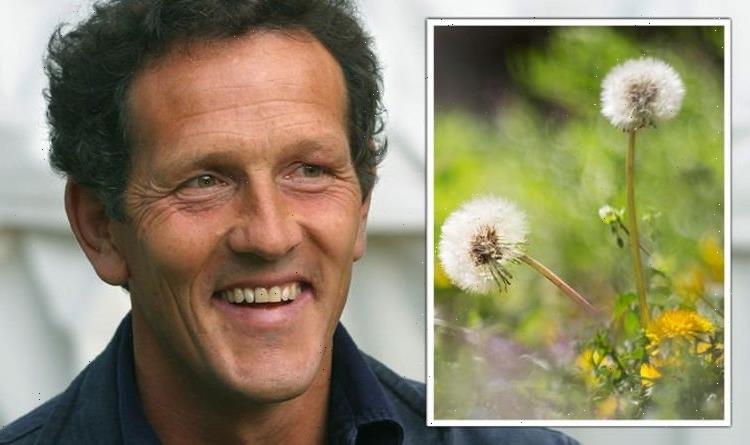Gardeners' World: Monty Don advises on house plant care
We use your sign-up to provide content in ways you’ve consented to and to improve our understanding of you. This may include adverts from us and 3rd parties based on our understanding. You can unsubscribe at any time. More info
Gardening expert and lead host of BBC Gardeners’ World Monty Don has shared what jobs keen gardeners can be getting on with in February. The garden pro shared his advice each month on his blog, Monty Don.com. One of the jobs gardeners can do this month is “weaken” and “suppress” weeds by mulching them.
Monty said gardeners should spread mulch on any bare soil and in flower beds and borders.
He described the method as “very effective but very simple”, and a technique that tackles both annual and perennial weeds.
He continued: “All you have to do is spread a layer of organic material over any bare soil.
“This will do three important jobs simultaneously.
READ MORE: How often should you change your sheets – more than you think!

“The first is to suppress any annual weeds and weaken any perennial ones.
“The second is to reduce evaporation and therefore keep in moisture and the third is that it will be incorporated into the soil by worms and improve the structure and nutrition.”
Perennial weeds can live for several years, are hardy and more difficult to get rid of.
Many of them have tap roots which need to be completely removed from the ground, otherwise they will reappear.
Annual weeds include hairy bittercress and groundsel.
DON’T MISS
Inside Meghan’s mother Doria Ragland’s £678,000 tropical house in LA [INSIGHT]
‘They look after themselves’: Gardener’s best ‘low maintenance’ plants [UPDATE]
February gardening: Nine jobs to do in the garden this week [ANALYSIS]
These weeds germinate from seeds, grow, flower, release more seeds and then die within a year.
The best material to use for mulch is home-made garden compost which Monty claims benefits plants because it is rich in bacteria and fungi.
The gardening expert said he used to use mushroom compost due to its alkaline properties.
He said the mushroom compost is good for lightening and “opening out” heavy clay soil.
Looking for a new home, or just fancy a look? Add your postcode below or visit InYourArea
However, Monty said he has stopped using it as most growers now put some peat in it.
He said he will not use it again until the compost is guaranteed to be peat-free.
Peat contains carbon which means when it is spread in a field or garden it can turn into carbon dioxide therefore adding to greenhouse gas levels.
The way peat is harvested means it drains bogs, destroying endangered habitats.
The Government announced last year that it intends to ban the sale of all peat compost in garden centres by 2024.

Instead, Monty suggested using home-made compost, council green waste, some proprietary organic peat-free compost and bark chips.
He continued: “I have used the latter for many years on our grass borders as they are slightly ericaceous (acidic) and have low fertility, both factors which are beneficial to ornamental grasses.
Whatever you use it is important to spread it thick enough – no less than two inches deep and twice that if you have enough material.
“It is better to to do half the garden properly than all of it with too thin a layer of mulch.”
Source: Read Full Article
